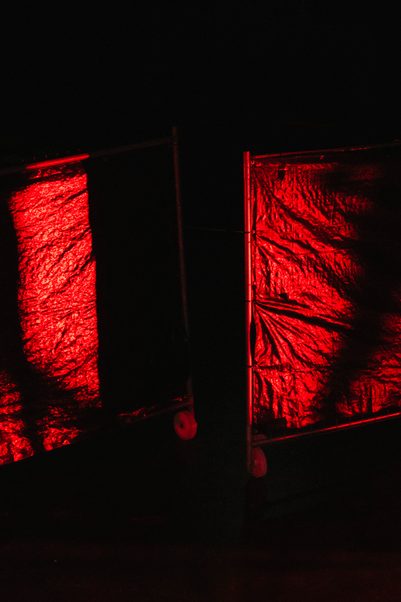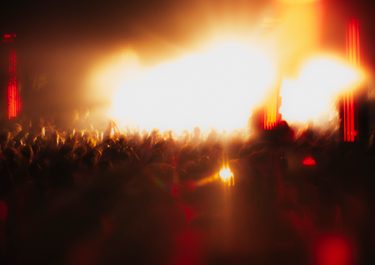
ADE Editorial: Intercell’s independent rise, without compromise
words by Meike Jentjens
photo credits: Angelina Nikolayeva
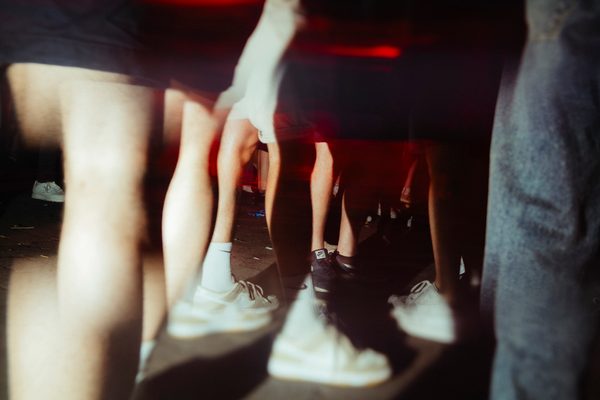
The power of staying small while going big
Intercell is everywhere this ADE, even more so than previous editions. Sixteen events in five days. Different venues, different sounds, different crowds, but one unmistakable identity. Their signature has been shaped not by trends or sponsorship, but by trust, consistency, and creative control.
While the industry shifts around them, the Amsterdam-based crew is doing what they've always done: building a 'club night in festival size' on their own terms. It’s not a branding choice; it fuels the entire operation. ‘There’s power in owning every step of the process,’ says co-founder Denzel Zurburg. ‘We’ve built something that’s flexible because it’s ours. We don’t have to run every decision through a business lens, we can run it through a creative one and look for authenticity.’
That flexibility is visible in everything Intercell touches. From intimate label showcases to large-scale warehouse nights, their programming sits just left of center: urgent but not trend-led, global but locally grounded. It’s a model that’s scaled quickly and deliberately without the outside backing heavy hitters sometimes rely on. But Intercell’s current position didn’t happen overnight, and as most people in the live events scene know, it's hard to maintain that eager, independent energy while also starting a professional company and growing bigger.
From warehouse warriors to festival force
Intercell began in 2015 with its first edition, after throwing illegal raves. Some under bridges, others in squatted buildings. Bas van Wersch was listening to harder techno, had no venue, no funding, no business plan, just a crew of like-minded friends and a love for industrial techno. Once, the young music fan and his friends cleared out a disused space, brought in their own gear, and hoped the police wouldn’t show up. Spoiler: they did. ‘It was chaos,’ laughs van Wersch. ‘But it worked. Friends started calling friends to tell them they needed to come to the party ASAP. People showed up because it felt raw and real. We never lost that, and never lost those people.'
‘We never imagined Intercell would grow into what it is now', Zurburg adds. ‘But once it became one, we decided to stay off the beaten path.'
Does that mean they turned down a few offers? Oh, definitely. But freedom is worth more than anything else, for these three.
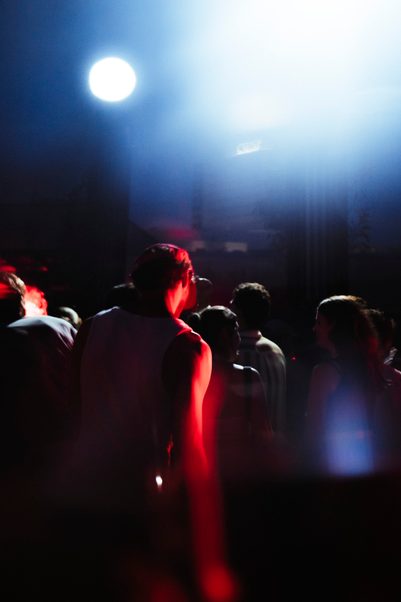
The power of staying small while going big
Intercell is everywhere this ADE, even more so than previous editions. Sixteen events in five days. Different venues, different sounds, different crowds, but one unmistakable identity. Their signature has been shaped not by trends or sponsorship, but by trust, consistency, and creative control.
While the industry shifts around them, the Amsterdam-based crew is doing what they've always done: building a 'club night in festival size' on their own terms. It’s not a branding choice; it fuels the entire operation. ‘There’s power in owning every step of the process,’ says co-founder Denzel Zurburg. ‘We’ve built something that’s flexible because it’s ours. We don’t have to run every decision through a business lens, we can run it through a creative one and look for authenticity.’
That flexibility is visible in everything Intercell touches. From intimate label showcases to large-scale warehouse nights, their programming sits just left of center: urgent but not trend-led, global but locally grounded. It’s a model that’s scaled quickly and deliberately without the outside backing heavy hitters sometimes rely on. But Intercell’s current position didn’t happen overnight, and as most people in the live events scene know, it's hard to maintain that eager, independent energy while also starting a professional company and growing bigger.
From warehouse warriors to festival force
Intercell began in 2015 with its first edition, after throwing illegal raves. Some under bridges, others in squatted buildings. Bas van Wersch was listening to harder techno, had no venue, no funding, no business plan, just a crew of like-minded friends and a love for industrial techno. Once, the young music fan and his friends cleared out a disused space, brought in their own gear, and hoped the police wouldn’t show up. Spoiler: they did. ‘It was chaos,’ laughs van Wersch. ‘But it worked. Friends started calling friends to tell them they needed to come to the party ASAP. People showed up because it felt raw and real. We never lost that, and never lost those people.'
‘We never imagined Intercell would grow into what it is now', Zurburg adds. ‘But once it became one, we decided to stay off the beaten path.'
Does that mean they turned down a few offers? Oh, definitely. But freedom is worth more than anything else, for these three.
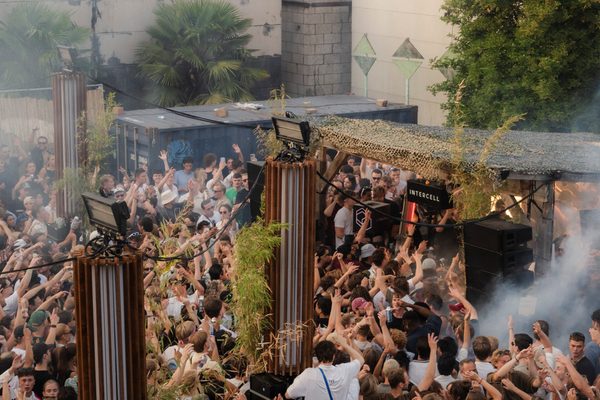
At the heart of Intercell’s model is a close-knit, (very) hands-on approach to everyone they work with: whether it’s an international headliner, an up-and-coming label, or the local crew handling visuals. ‘We’re in constant contact with everyone involved,’ says programmer Chip de Jong. ‘Not just in the weeks leading up to a show, but throughout the year. That personal connection is what allows us to move quickly, to take risks, and to stay grounded.’ Each collaboration is the result of an ongoing relationship, often built over years. The team doesn’t chase names, they invest in people. From the first back-and-forth to the last minute of production, there’s always someone from Intercell closely involved. Zurburg puts it plainly: ‘You can only run sixteen shows in five days if everyone feels seen. That’s the only way it works.’
‘We’re not just throwing names on a flyer,’ says De Jong. ‘We build together with artists and labels. If someone’s playing at Intercell during ADE, we’ve had the conversations way before, shared ideas, and shaped it together. That’s what makes the night feel right, for us and for them.’
It’s this approach that allowed Intercell to bounce back fast after COVID. When the scene reopened, they weren’t scrambling to rebuild, they were already positioned to scale. The structure was small but resilient and the trust was already there. Are we watching a new generation of organizers standing up since?
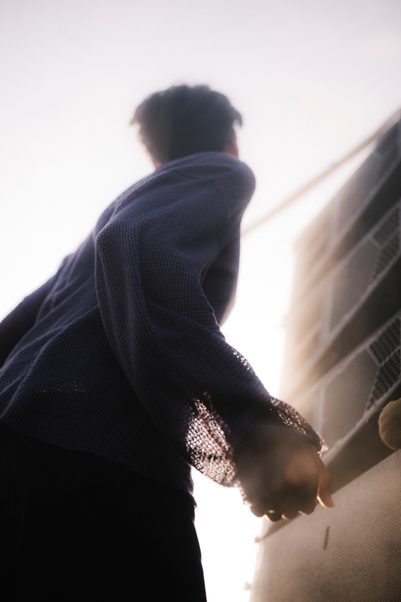
At the heart of Intercell’s model is a close-knit, (very) hands-on approach to everyone they work with: whether it’s an international headliner, an up-and-coming label, or the local crew handling visuals. ‘We’re in constant contact with everyone involved,’ says programmer Chip de Jong. ‘Not just in the weeks leading up to a show, but throughout the year. That personal connection is what allows us to move quickly, to take risks, and to stay grounded.’ Each collaboration is the result of an ongoing relationship, often built over years. The team doesn’t chase names, they invest in people. From the first back-and-forth to the last minute of production, there’s always someone from Intercell closely involved. Zurburg puts it plainly: ‘You can only run sixteen shows in five days if everyone feels seen. That’s the only way it works.’
‘We’re not just throwing names on a flyer,’ says De Jong. ‘We build together with artists and labels. If someone’s playing at Intercell during ADE, we’ve had the conversations way before, shared ideas, and shaped it together. That’s what makes the night feel right, for us and for them.’
It’s this approach that allowed Intercell to bounce back fast after COVID. When the scene reopened, they weren’t scrambling to rebuild, they were already positioned to scale. The structure was small but resilient and the trust was already there. Are we watching a new generation of organizers standing up since?
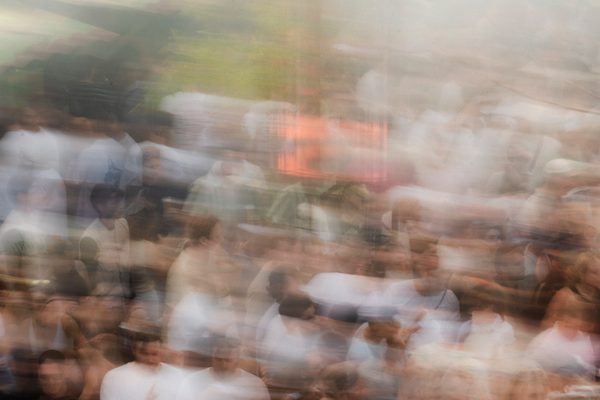
It appears so. These people defining the scene seem to do everything themselves. Within a year after The Netherlands opening back up, Intercell was running multiple events per weekend, collaborating with partners across Europe, and reaching wider audiences, without ever adjusting their core philosophy. The result is what you see during ADE: sixteen distinct events, curated by a small, independent team.
'Has it been done yet?'
The Amsterdam-based programmer digs deep; not just into line-ups and stats, but into how artists connect, where they come from, who they might surprise alongside. 'Some bookings are definitely in place to make people happy, others are to surprise people. My job is to find that sweet spot.' He looks for tension, energy, unpredictability. Back-to-backs that haven’t been done. Live sets that might not be polished yet, but have potential. The goal is to stay ahead without chasing hype. To offer something new, without saying it out loud. Some bookings might not ‘sell’ extremely fast, but they set a tone. Others are returning names, artists the team backed before they made it big, and still trust to carry a room. 'There’s a baseline of quality at Intercell, but no fixed genre. I always strive for that ravey spirit, an unmistakable climax, and a playful or raw feeling. What matters is whether the music makes people move', says Chip de Jong. 'Pick your direction – our music packs a punch.'
Intercell’s ADE program speaks for itself. Highlights include a second round of Narciss’ Battle Royale – named best event of ADE 2024 by 3voor12 – plus takeovers by Eris Drew & Octo Octa, Luke Slater, and a stacked ATW label night with both head honchos. The label is helmed by Main Phase and Interplanetary Criminal, the latter of whom we spoke to at Intercell’s outdoor event in July, as well as guest artist La La. Their sets made waves, and likely paved the way for a follow-up during ADE. A clear example of how Intercell builds momentum through long-term relationships and sharp programming, with (UK) garage clearly emerging as one of the most popular sounds at this year's ADE Festival.
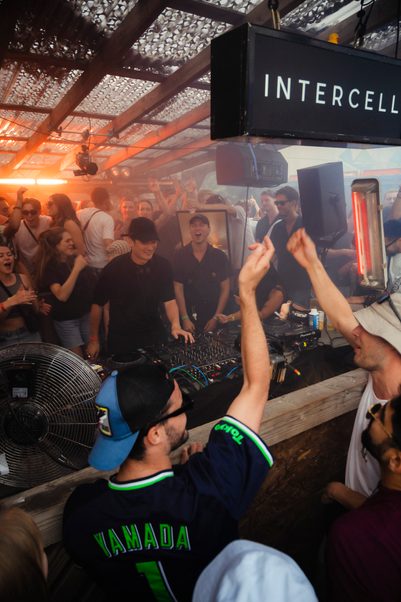
It appears so. These people defining the scene seem to do everything themselves. Within a year after The Netherlands opening back up, Intercell was running multiple events per weekend, collaborating with partners across Europe, and reaching wider audiences, without ever adjusting their core philosophy. The result is what you see during ADE: sixteen distinct events, curated by a small, independent team.
'Has it been done yet?'
The Amsterdam-based programmer digs deep; not just into line-ups and stats, but into how artists connect, where they come from, who they might surprise alongside. 'Some bookings are definitely in place to make people happy, others are to surprise people. My job is to find that sweet spot.' He looks for tension, energy, unpredictability. Back-to-backs that haven’t been done. Live sets that might not be polished yet, but have potential. The goal is to stay ahead without chasing hype. To offer something new, without saying it out loud. Some bookings might not ‘sell’ extremely fast, but they set a tone. Others are returning names, artists the team backed before they made it big, and still trust to carry a room. 'There’s a baseline of quality at Intercell, but no fixed genre. I always strive for that ravey spirit, an unmistakable climax, and a playful or raw feeling. What matters is whether the music makes people move', says Chip de Jong. 'Pick your direction – our music packs a punch.'
Intercell’s ADE program speaks for itself. Highlights include a second round of Narciss’ Battle Royale – named best event of ADE 2024 by 3voor12 – plus takeovers by Eris Drew & Octo Octa, Luke Slater, and a stacked ATW label night with both head honchos. The label is helmed by Main Phase and Interplanetary Criminal, the latter of whom we spoke to at Intercell’s outdoor event in July, as well as guest artist La La. Their sets made waves, and likely paved the way for a follow-up during ADE. A clear example of how Intercell builds momentum through long-term relationships and sharp programming, with (UK) garage clearly emerging as one of the most popular sounds at this year's ADE Festival.
Intercell’s momentum seems part of a wider shift. As the next generation of promoters, artists, and crowds finds its footing, younger collectives are tapping directly into their own communities; programming for peers instead of industry expectations. That shift is opening new doors, but it’s also revealing how tough the landscape still is. Rising costs, rigid exclusivity deals, and increasingly saturated calendars make it hard for many independent organizers to break through. Intercell’s consistency stands out, but it’s not just luck or good timing. They now run annual events in places like Melbourne and Los Angeles, with ambitions to expand even further, but never with a copy-paste mindset. In every city, they look closely at the local scene, and build with it. As Van Wersch and Zurburg put it: 'It’s not about taking over. It’s about showing up, and being invited in. And we use our momentum by contributing to local scenes.'
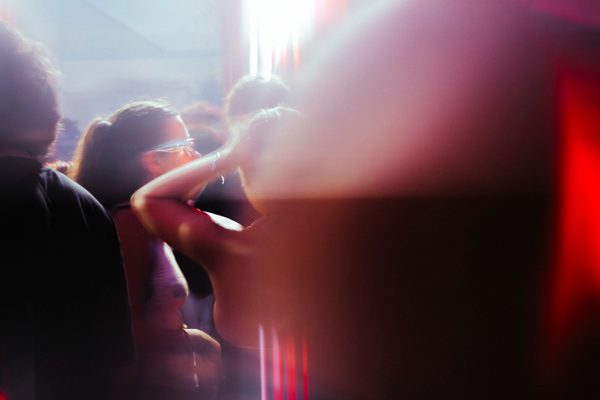
That might be the real marker of success in 2025: staying connected while moving forward. Want to learn more about staying independent?
ADE Pro has revealed its main themes for the Conference. Read more about Independence | Empowering the Independent Artist & Entrepreneur.
